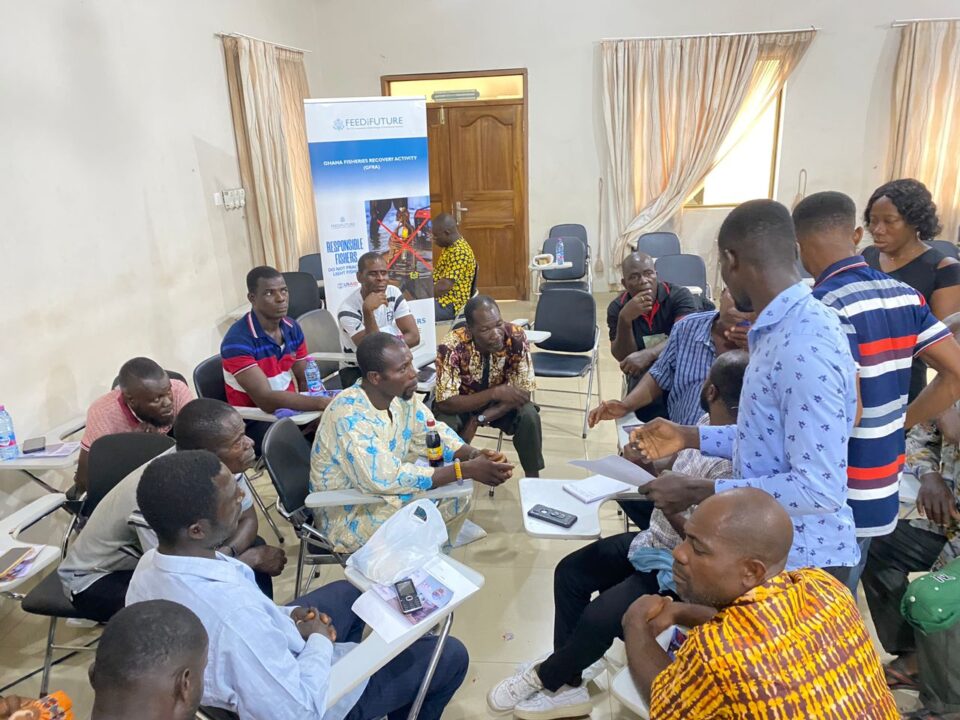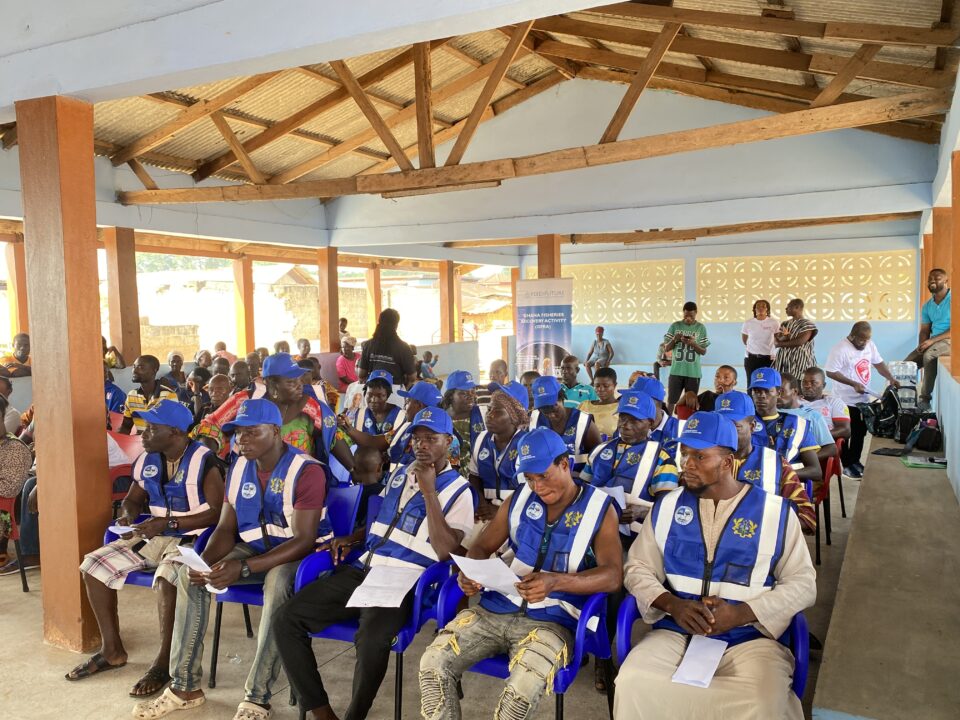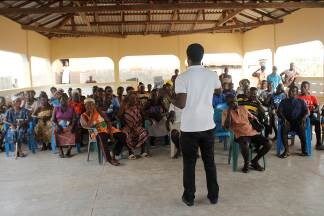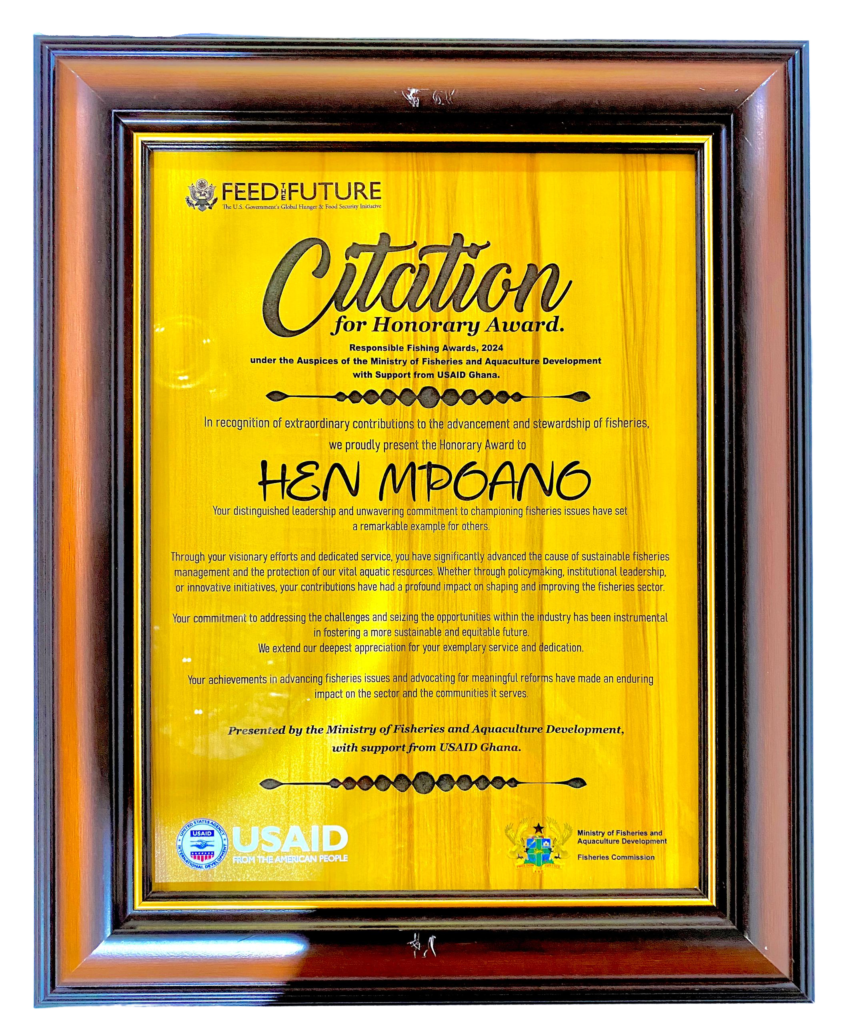Fisheries Co-management and Marine Protected Areas
Small Pelagic Co-management
The Small Pelagic Co-management Committee is structured to involve a broad range of stakeholders, including fishermen, fish processors, government representatives, and civil society organizations. This structure ensures that the decision-making process is inclusive and representative of those directly impacted by fisheries management.

The committee operates at multiple levels, from national to community-based management units, with specific roles and responsibilities designated to each level. For example, the Fisheries Commission is responsible for setting up co-management committees, which may operate at both large and small scales, depending on the geographic area and the species involved. The committee’s structure is designed to promote local community involvement in fisheries management planning and decision-making, ensuring that those who rely on fisheries resources have a voice in how they are managed.
Through the Ghana Fisheries Recovery Activity funded by USAID, Hen Mpoano facilitated community engagements, self-nomination, training and capacity building for 2 regional level SPCC in the Western and Central Regions of Ghana.
Landing Beach Enforcement
The Landing Beach Enforcement Committee (LaBEC) is a volunteer local fisheries co-management body that collaborates with law enforcement agencies. It is intended to integrate local norms with existing legal fishing laws stated in the Fisheries Act 625. LaBEC is made up of up to 15 members, including fisherman, fishmongers, chief fishermen, elders, assemblymen, and other opinion leaders who are directly involved in fishing activities. The organization is in charge of aiding the enforcement of fisheries regulations, monitoring fishing activities, and responding to situations such as accidents or industrial trawler attacks at sea. The committee inspects canoes before they leave landing beaches and actively participates in dispute resolution, enforcing local rules, and resolving community disagreements.

Through the Ghana Fisheries Recovery Activity funded by USAID, Hen Mpoano facilitated community engagements, self-nomination, training and capacity building for 8 Landing Beach Enforcement Committees in the Western of Ghana. It has also supported the capacity building of 9 Landing Beach Enforcement Committees in the Central Region of Ghana.
Marine Protected Areas
Hen Mpoano is leading the establishment of Ghana’s first network of Marine Protected Areas (MPAs) along the western coast. The initiative is based on community engagement, stakeholder collaboration, and sustainable marine resource management. The approach involves local fisherfolk and community leaders, ensuring their participation is crucial for the success of conservation efforts. Hen Mpoano’s strategy for MPA development emphasizes robust community-level engagement, forming committees representing coastal communities’ interests. These committees play a critical role in decision-making processes and advocating for the sustainable use of marine resources.
Hen Mpoano is also actively seeking partnerships with international organizations, government bodies, and funding agencies to support the long-term success of MPAs in Ghana. The principles of co-management guide the work, where local communities are not only beneficiaries but also stewards of marine resources. Hen Mpoano aims to enhance stakeholder capacity through training, monitoring, and assessment activities, contributing to the resilience of coastal ecosystems and the well-being of local populations.



